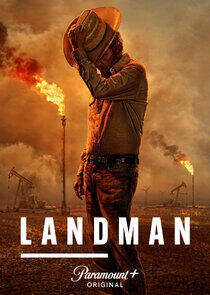Magical Japanese - Season 4 / Year 2024

Season 4 / Year 2024

Episodes

Write
Written Japanese was developed and refined after Japan began using Chinese kanji characters in the early 5th century. This history is reflected in the many words related to kaku, or "to write."

Mountain
This episode focuses on words related to yama (mountains). Mountains make up about 75% of Japan's territory, and they have made their way into many common expressions in the Japanese language.

Eye
This episode focuses on me (eye). Just like other languages, Japanese has a lot of words and phrases related to eyes, and they are often used in daily life.

Bag
This episode focuses on words related to fukuro (bag). Reflecting its unique wrapping culture, Japan has a wide variety of bags, leading to an equal variety of Japanese words and expressions.

Salt
This episode focuses on words related to shio, or salt. Salt played an important role in the development of Japan's food culture and religion, and it continues to add flavor to many Japanese expressions.

Castle
In this episode, poet and literary translator Peter MacMillan explores Himeji Castle in Hyogo Prefecture and examines words and expressions related to Japanese castles.

Wheel
This episode focuses on kuruma, which means both wheel and wheeled vehicle. A ubiquitous word, it has rolled its way into many Japanese expressions.

River/Stream
This episode focuses on kawa, which means both river and stream. These flowing bodies of water have played a central role in Japanese life and philosophy, as reflected in the Japanese language.

Seven
This episode focuses on nana, or the number seven. Seen as a lucky number in Japan, it has given rise to many unique everyday words and expressions.

Mouth
This episode focuses on kuchi (mouth). Japanese has many words and phrases related to its shape and functions.

Acting
This episode focuses on shibai, which means both "a play" and "acting." It describes all types of acting and has produced many unique expressions.

Theater
This episode focuses on gekijo, or "theater." Japanese theaters have characteristic features that have produced many idiomatic expressions.

Step
This episode focuses on fumu, meaning both "to step" and "to stomp." The action is an important part of Japanese Shinto rituals and is used in many Japanese expressions.

Sound
This episode focuses on oto, or "sound." Japanese is rich in sound-related expressions and idioms, many describing aspects of reputation and communication.

The Manyoshu Edition / Episode I: Love
The Manyoshu is the oldest extant anthology of Japanese poetry. Through poems presented in both manga and a modern setting, we glimpse sentiments from centuries ago.

The Manyoshu Edition / Episode II: Business
The Manyoshu is the oldest extant anthology of Japanese poetry. Through poems presented in manga and a modern setting, we glimpse sentiments from centuries ago. The topic this time is business.

Wear
People have long worn clothes to protect themselves from the elements and signal their social status, producing many Japanese words and expressions related to kiru, or "to wear."

Grass
The Japanese people's coexistence with nature has led to many words and expressions related to kusa or "grass" taking root in the Japanese language.
Recently Updated Shows

NCIS
NCIS (Naval Criminal Investigative Service) is more than just an action drama. With liberal doses of humor, it's a show that focuses on the sometimes complex and always amusing dynamics of a team forced to work together in high-stress situations. Leroy Jethro Gibbs, a former Marine gunnery sergeant, whose skills as an investigator are unmatched, leads this troupe of colorful personalities. Rounding out the team are Anthony DiNozzo, an ex-homicide detective whose instincts in the field are unparalleled and whose quick wit and humorous take on life make him a team favorite; the youthful and energetic forensic specialist Abby Sciuto, a talented scientist whose sharp mind matches her Goth style and eclectic tastes; Caitlin Todd, an ex-Secret Service Agent; and Timothy McGee, an MIT graduate whose brilliance with computers far overshadows his insecurities in the field; Assisting the team is medical examiner Dr. Donald "Ducky" Mallard, who knows it all because he's seen it all, and he's not afraid to let you know. From murder and espionage to terrorism and stolen submarines, these special agents travel the globe to investigate all crimes with Navy or Marine Corps ties.

Landman
Set in the proverbial boomtowns of West Texas, Landman is a modern day tale of fortune seeking in the world of oil rigs. The series is an upstairs/downstairs story of roughnecks and wildcat billionaires fueling a boom so big, it's reshaping our climate, our economy and our geopolitics.

The Creep Tapes
Based on a collection of videotapes in the secret vault of the world's deadliest and most socially uncomfortable serial killer, who hires his victims to film him for the day under false pretenses, each episode exposes a new victim from one of the fabled 'Creep Tapes'.

America's Funniest Home Videos
ABC's longest-running primetime entertainment show, America's Funniest Home Videos, returns for season 36 this fall with the same mission -- giving families something genuinely funny to enjoy together on Sunday nights.
"AFV," the longest-running primetime entertainment show in ABC history, returns for season 36 with the same mission - to provide viewers with hysterical moments that fly by at a dizzying pace.

The Real Housewives of Potomac
Just up the river from our nation's capital lies a hidden gem—Potomac, Maryland. Its rolling hills, gated mansions, sophisticated prep schools, and exclusive country clubs all serve to keep the area invitation-only. Sprinkled throughout this community are a handful of old-line, wealthy African-American families who have historically broken racial barriers to provide a life of privilege for their children. The Real Housewives of Potomac follows the upscale lives of six intriguing, well-to-do women: Gizelle Bryant, Katie Rost, Karen Huger, Charrisse Jackson-Jordan, Robyn Dixon, and Ashley Darby, all of whom have fought for their places in this society by way of legacy or marriage. In a town where entry is granted only through class, pedigree, and lineage, how far will these ladies go to secure their spot at the top of this prestigious circle?